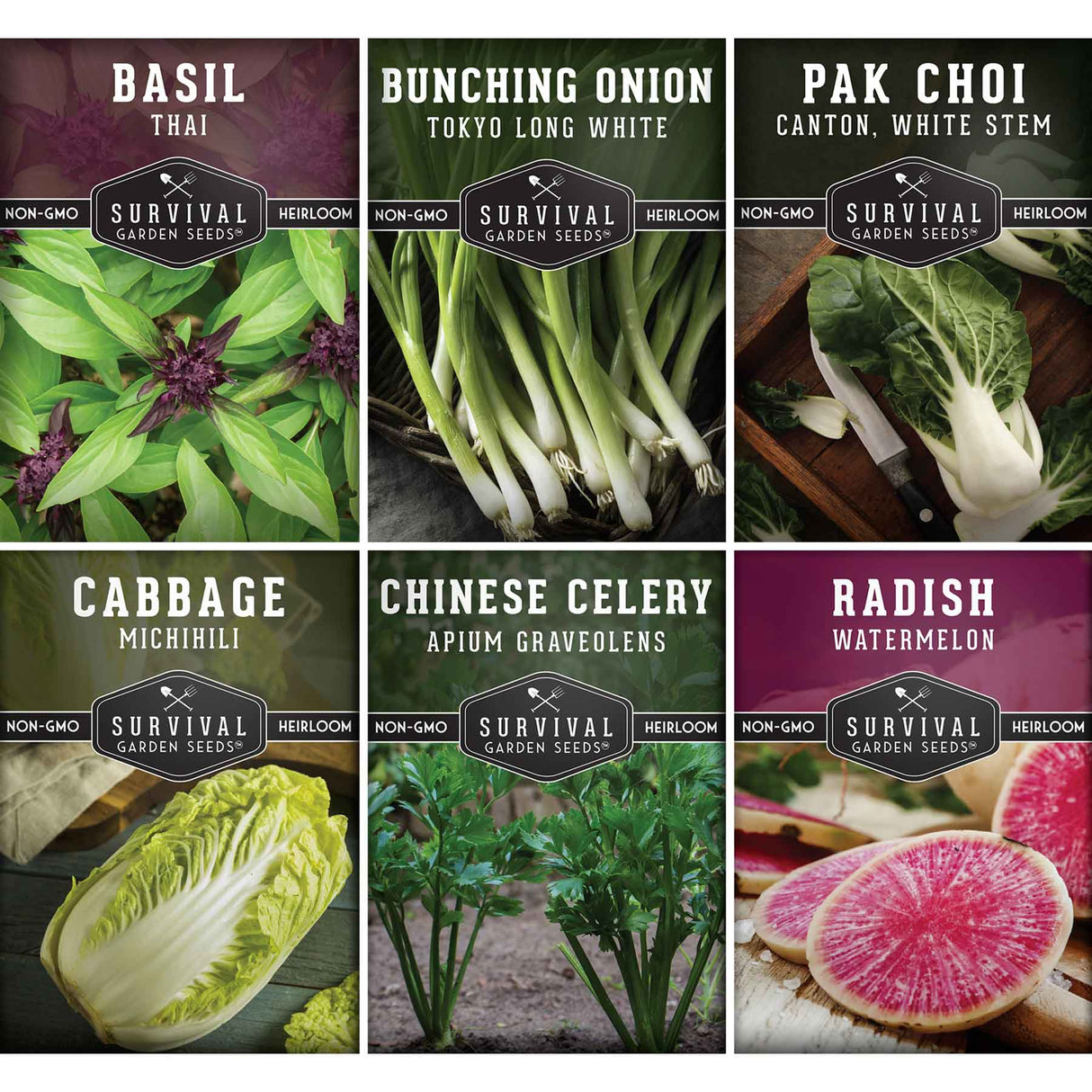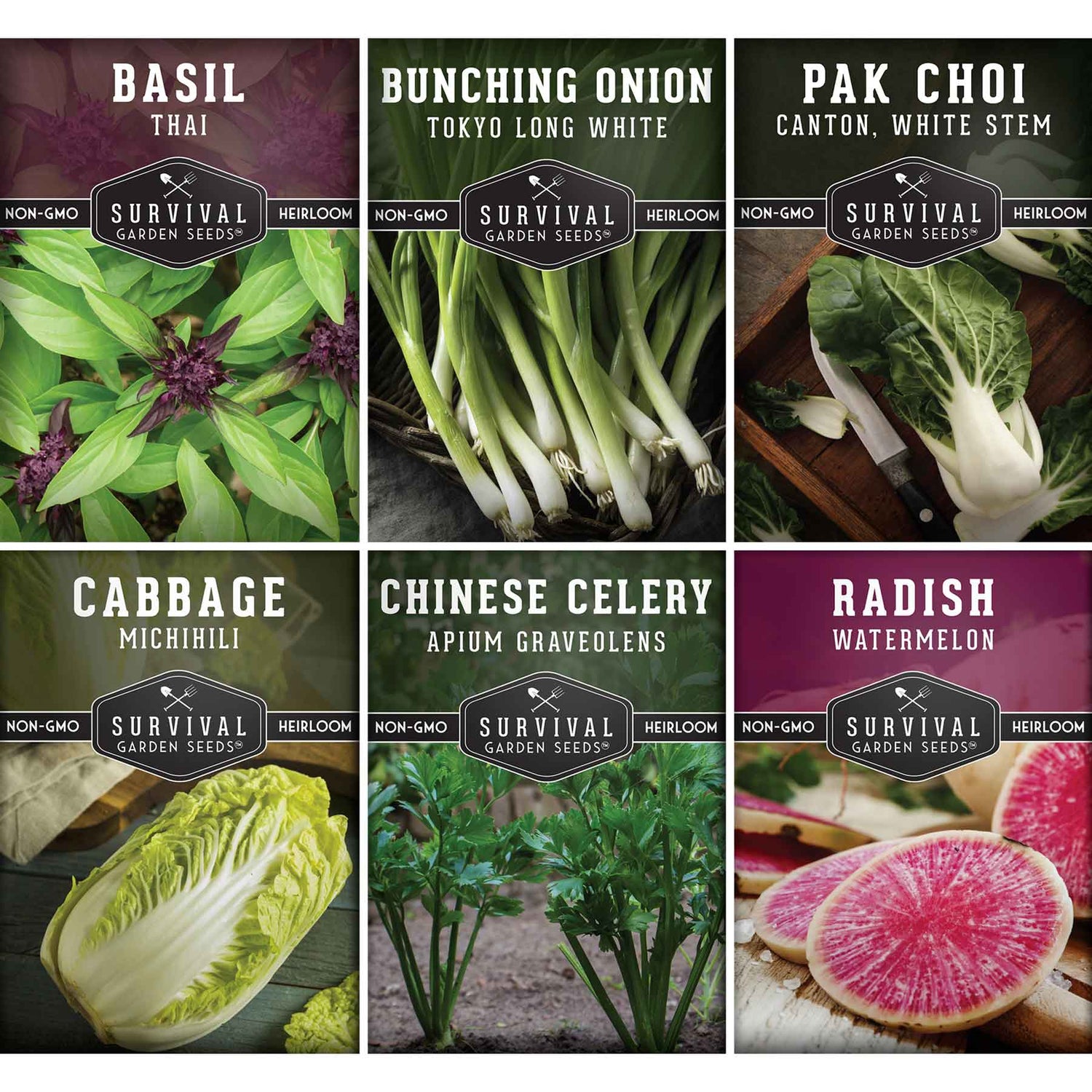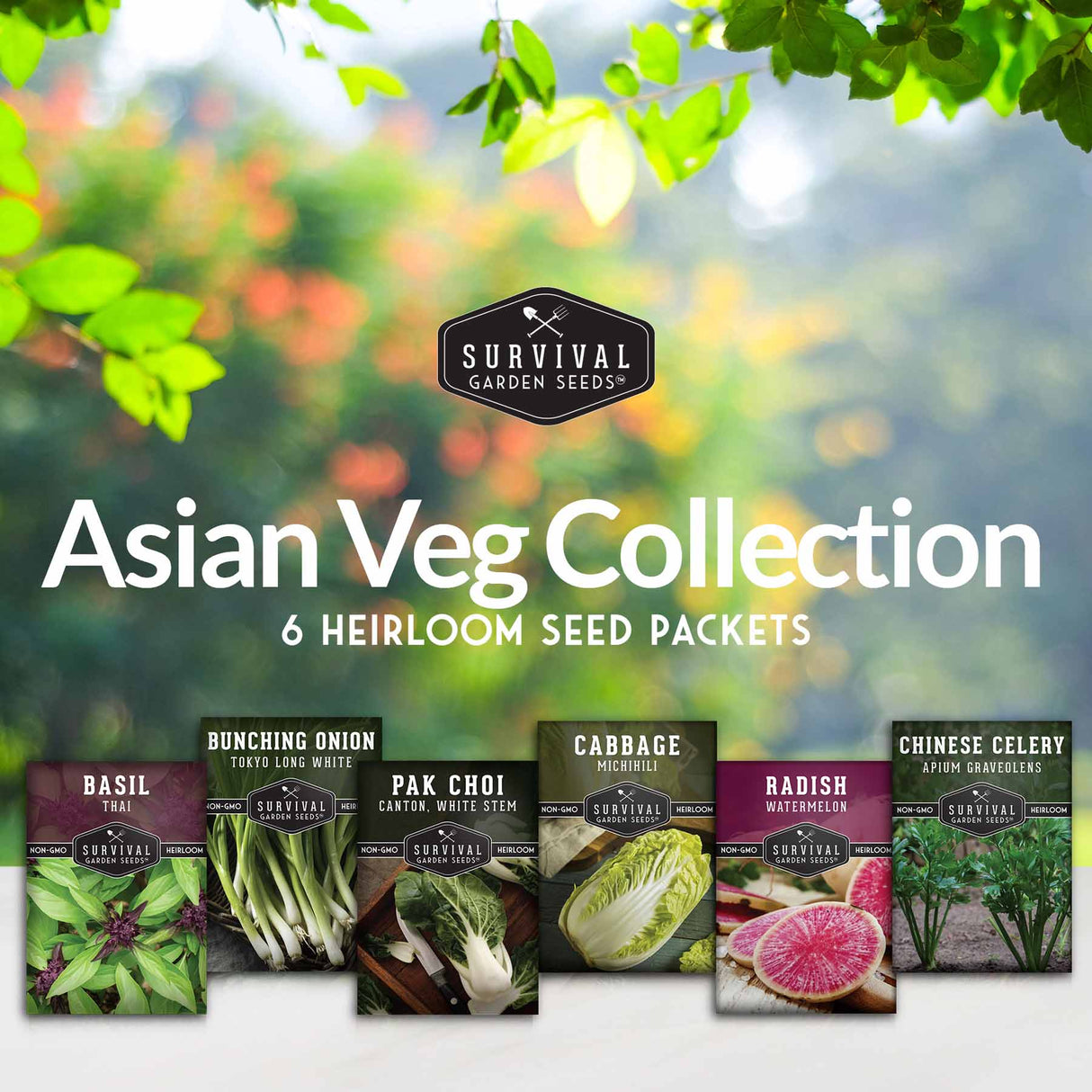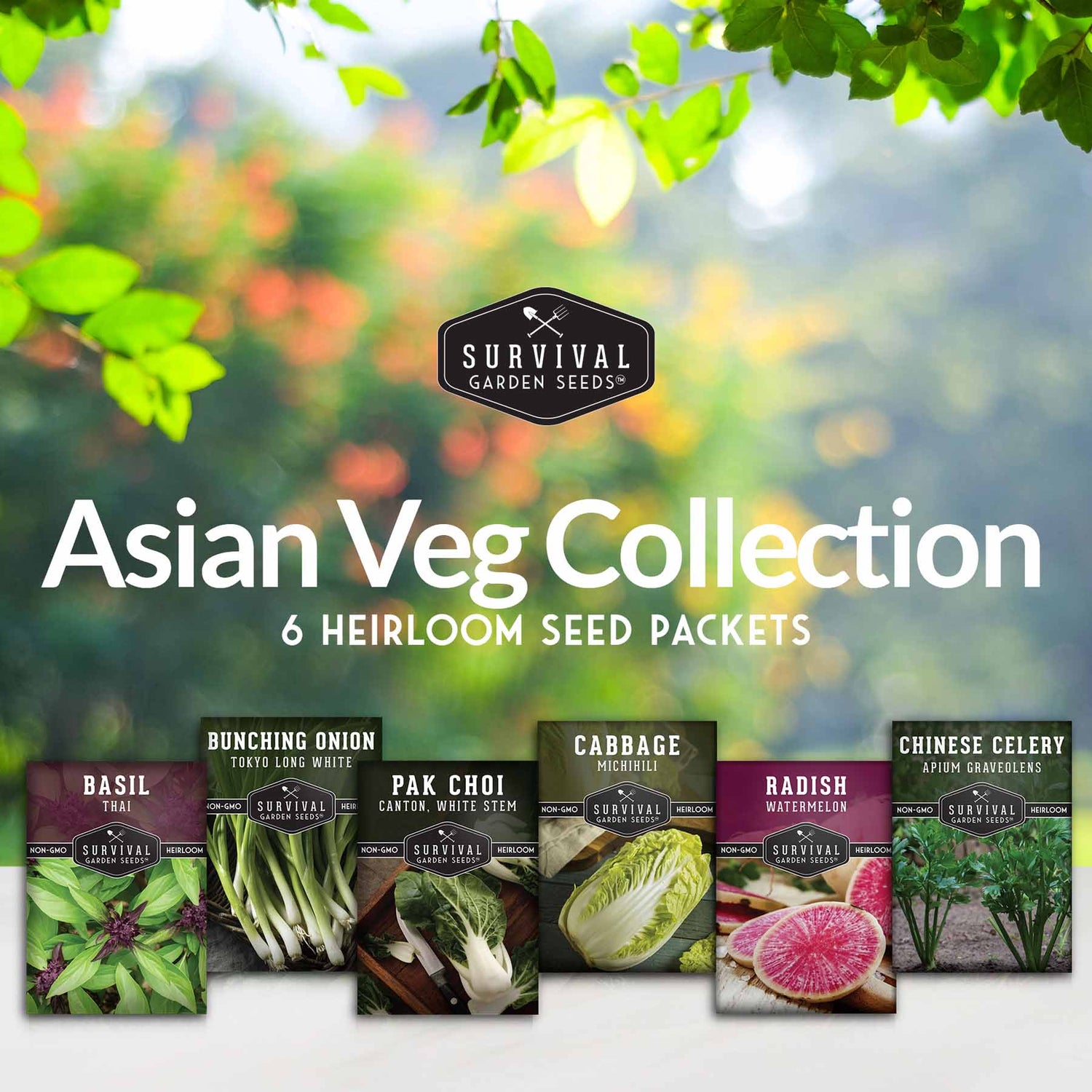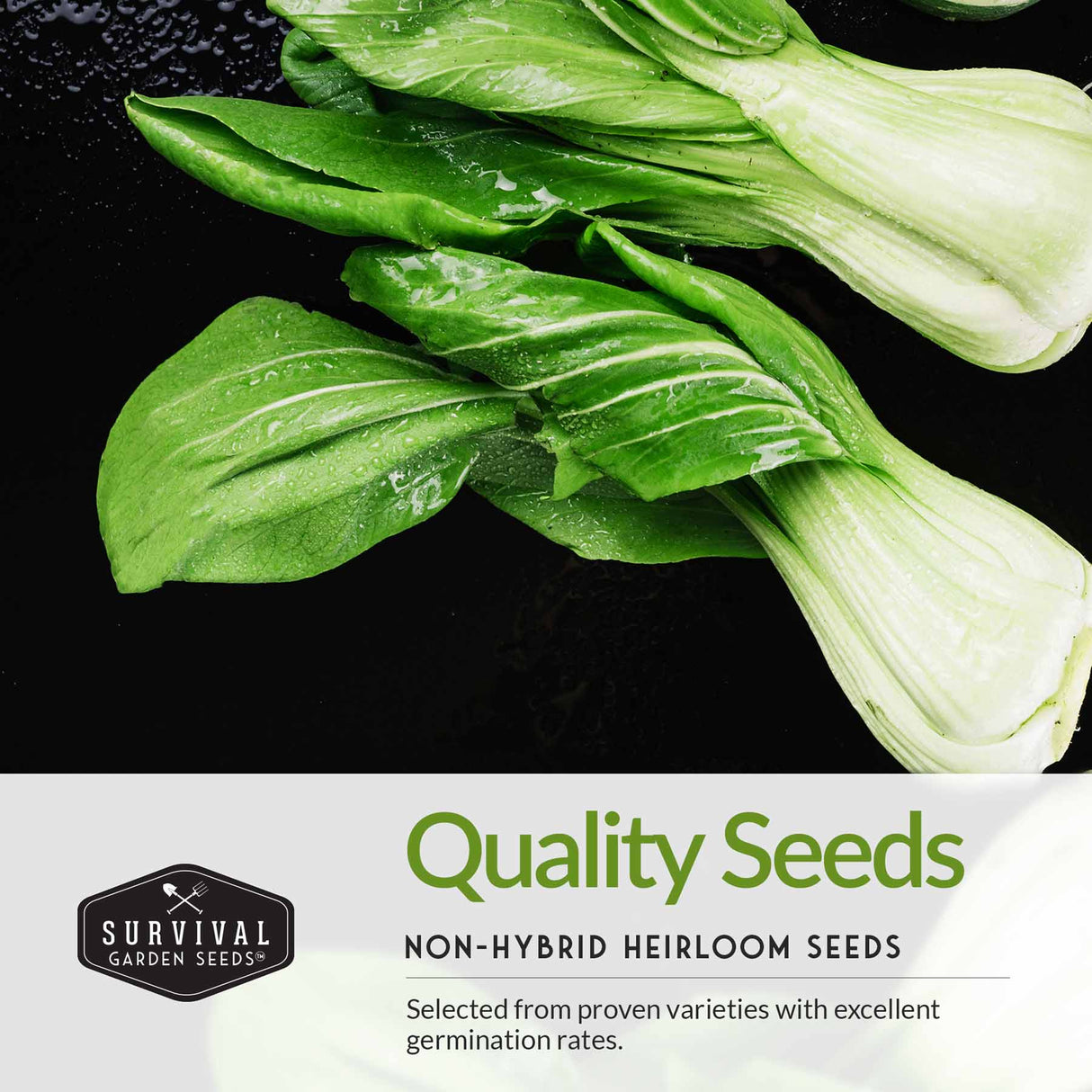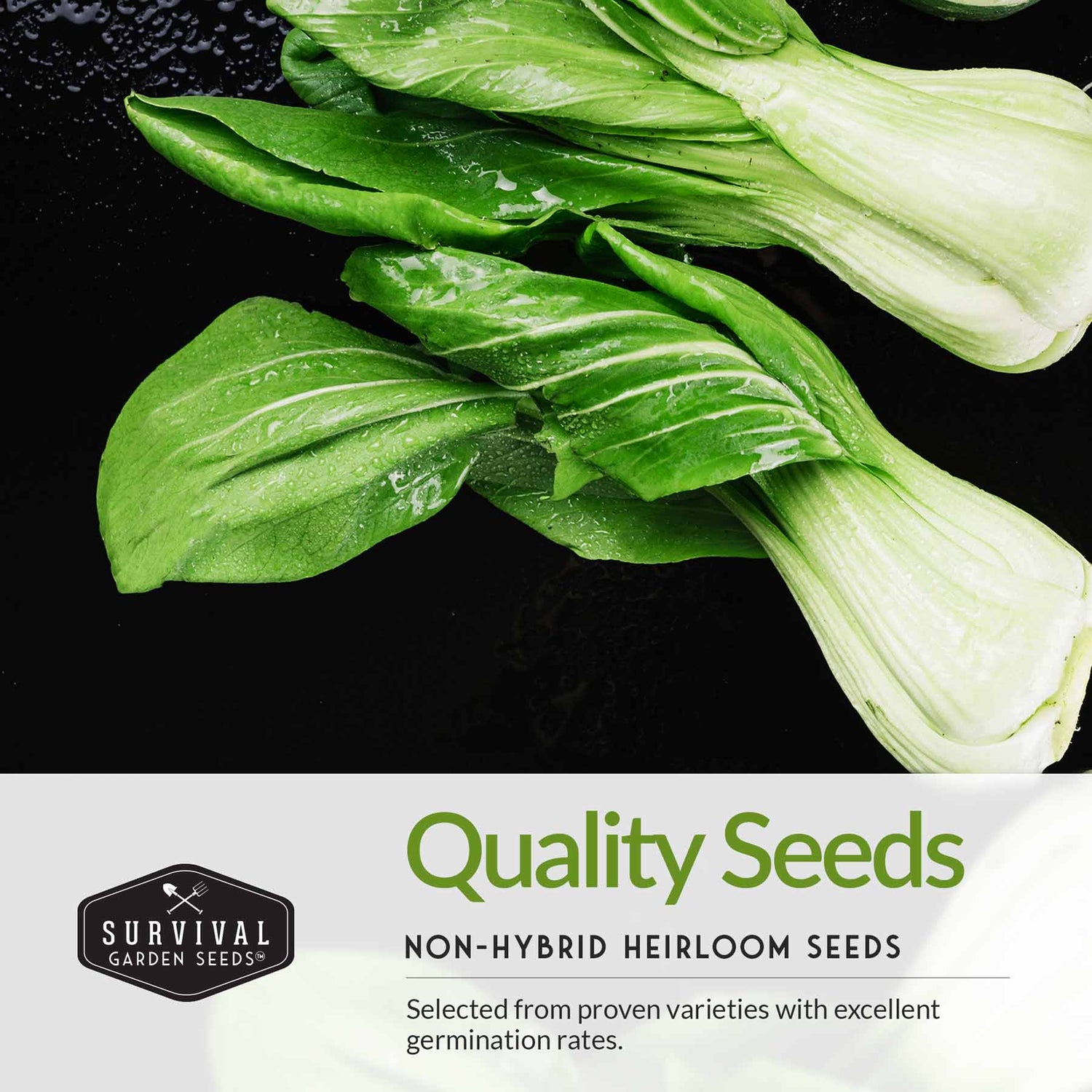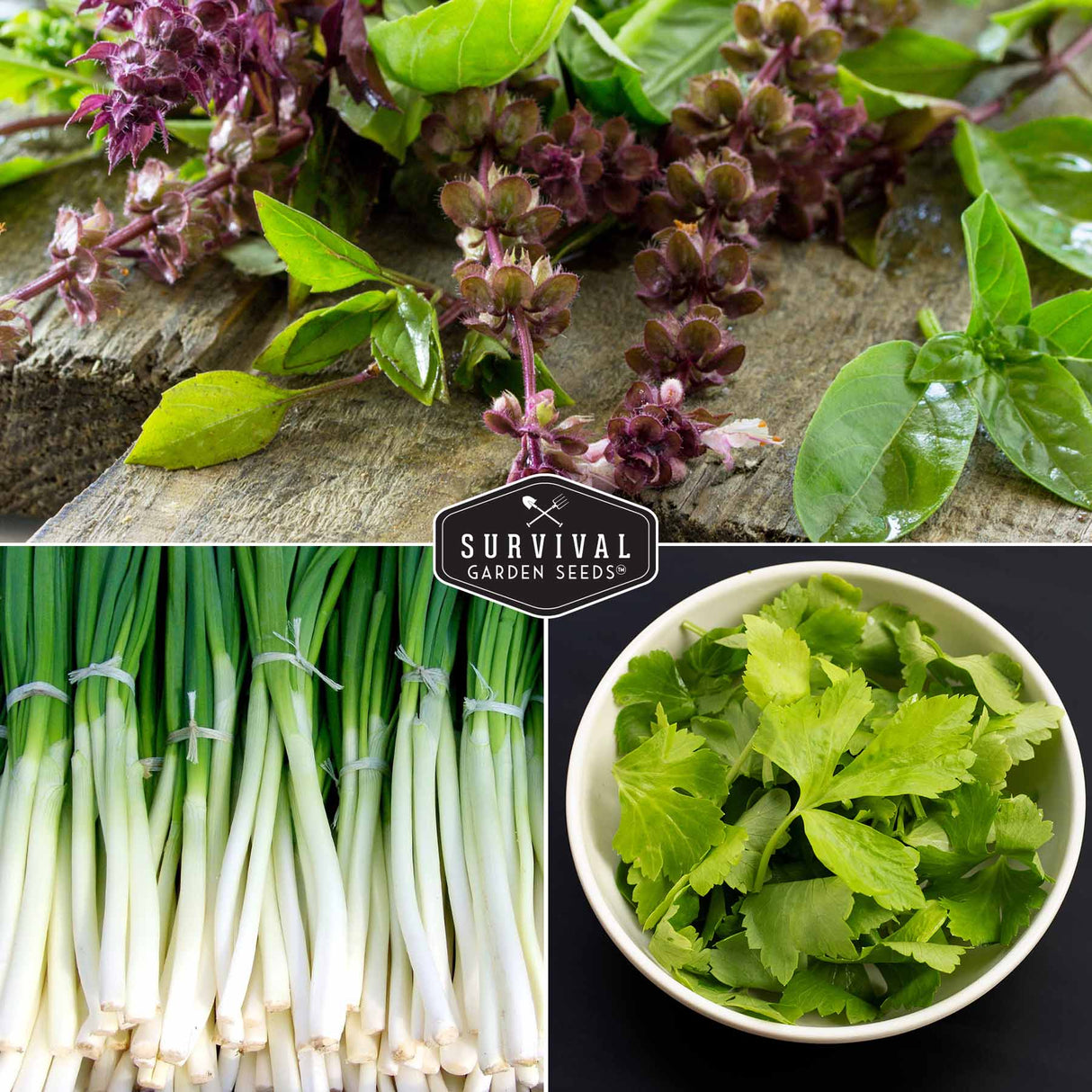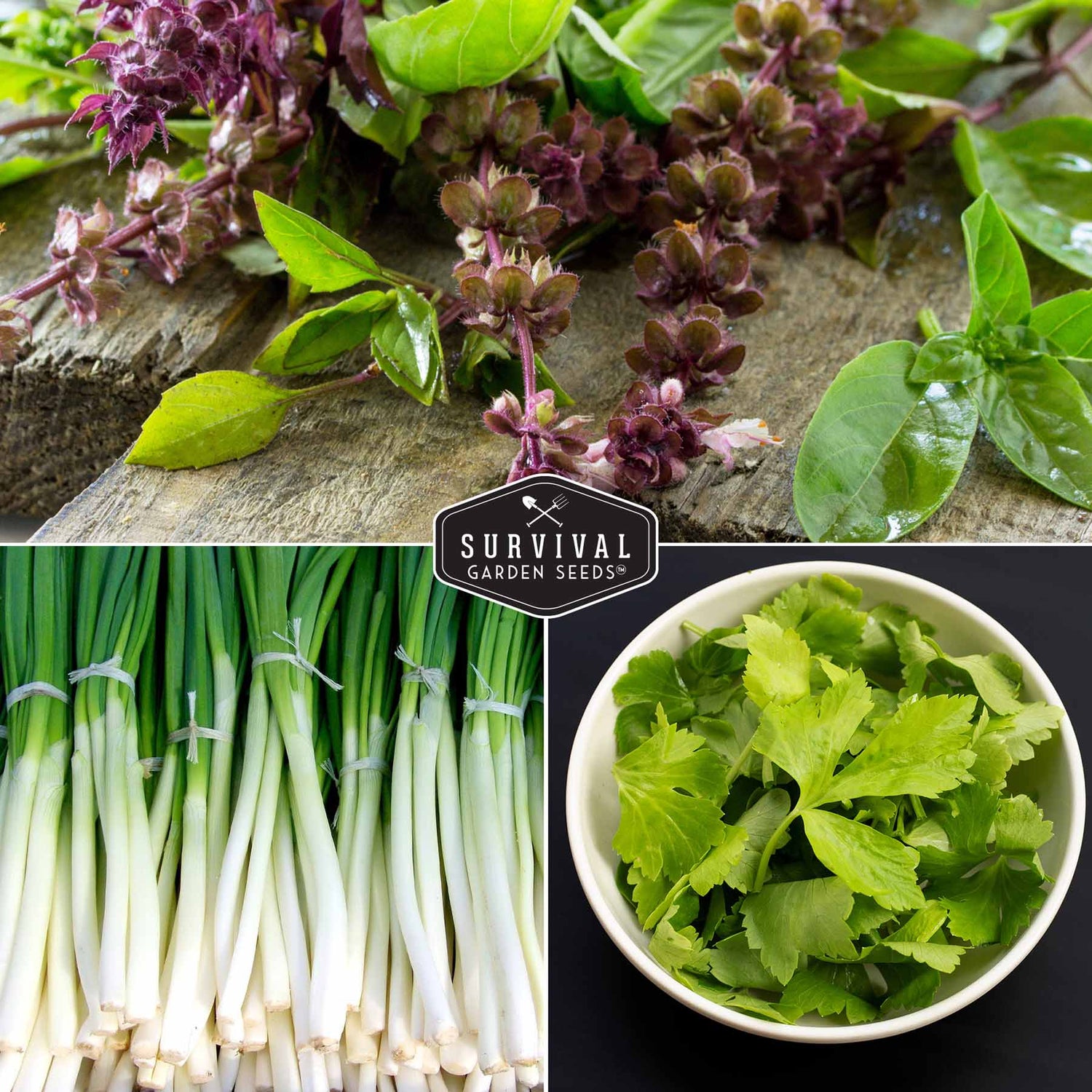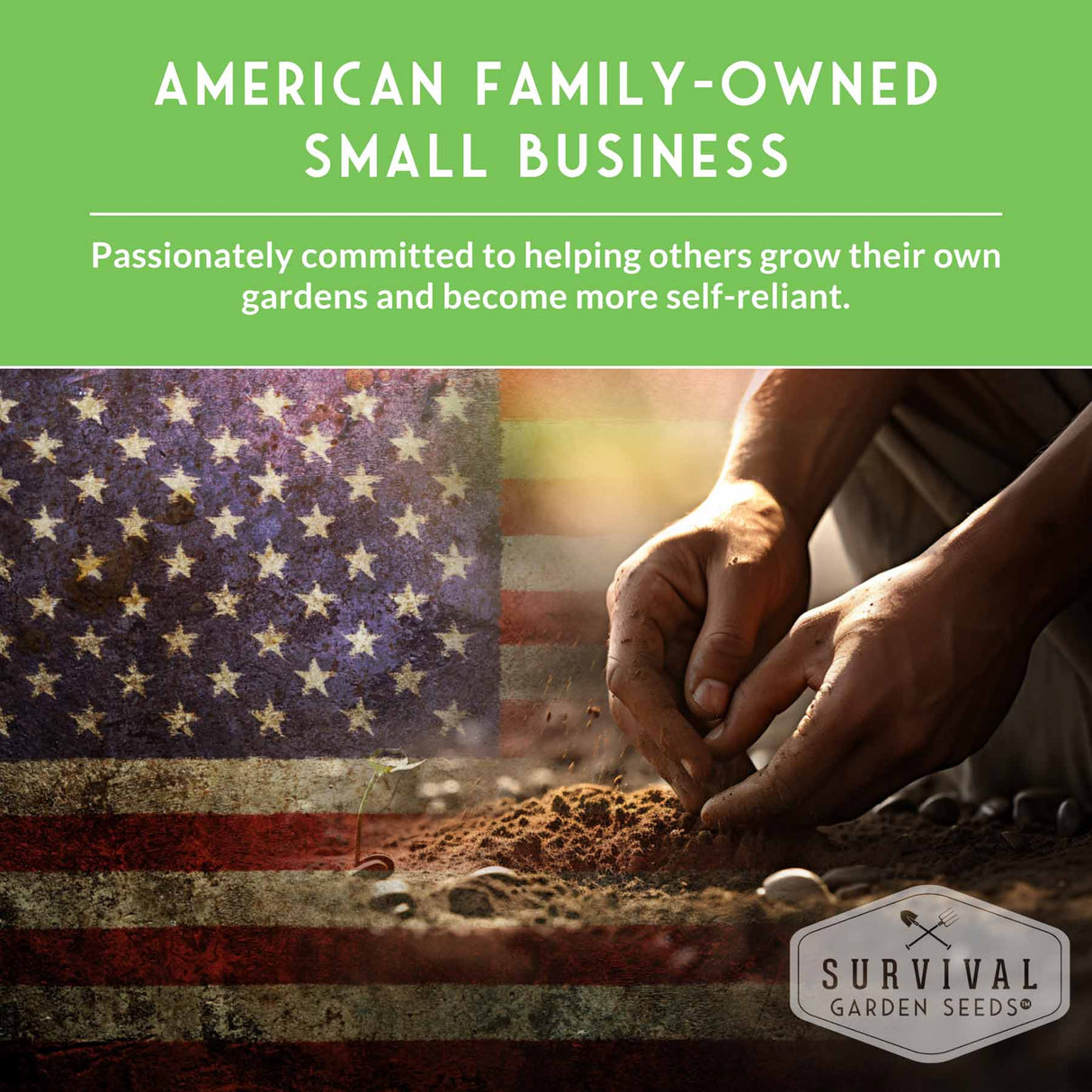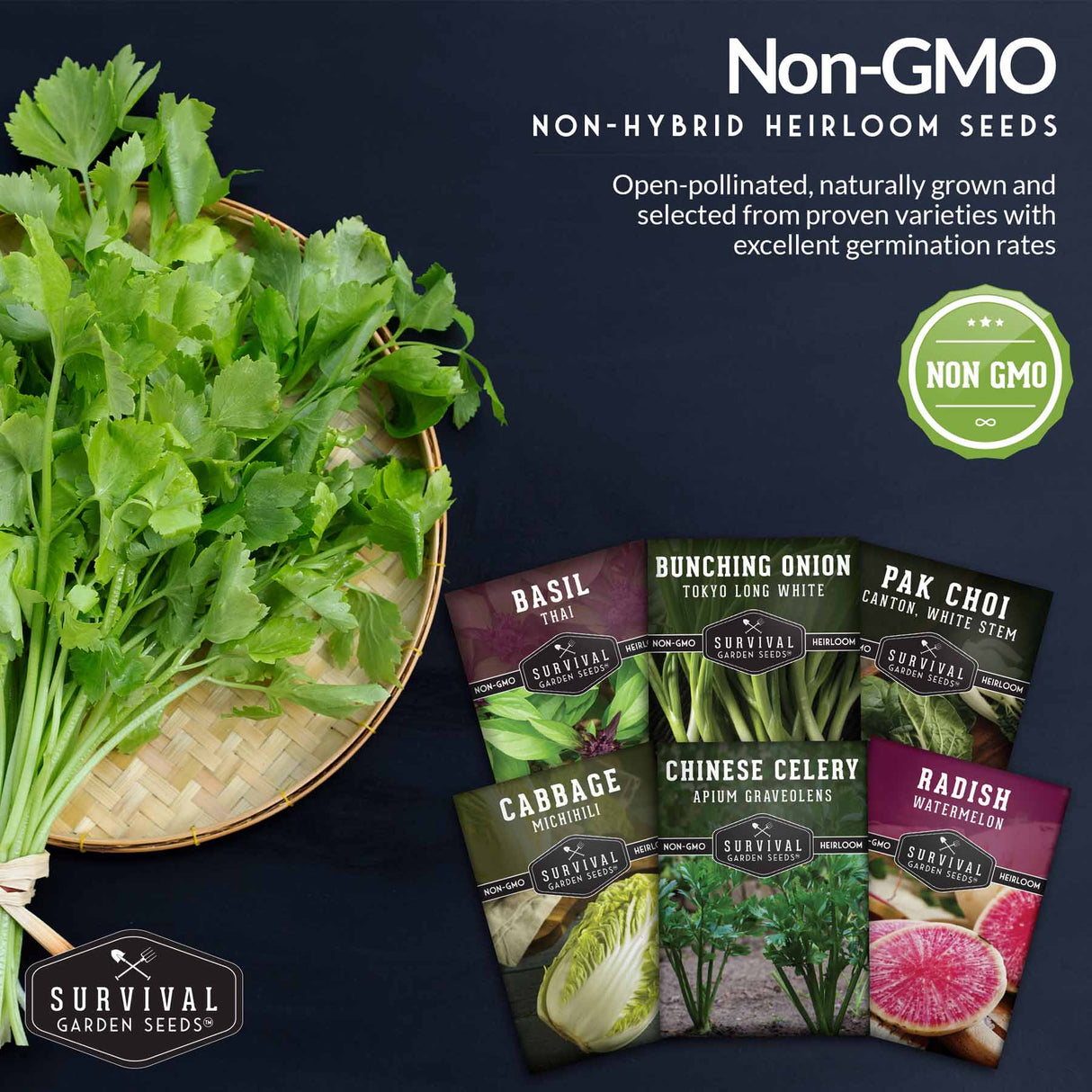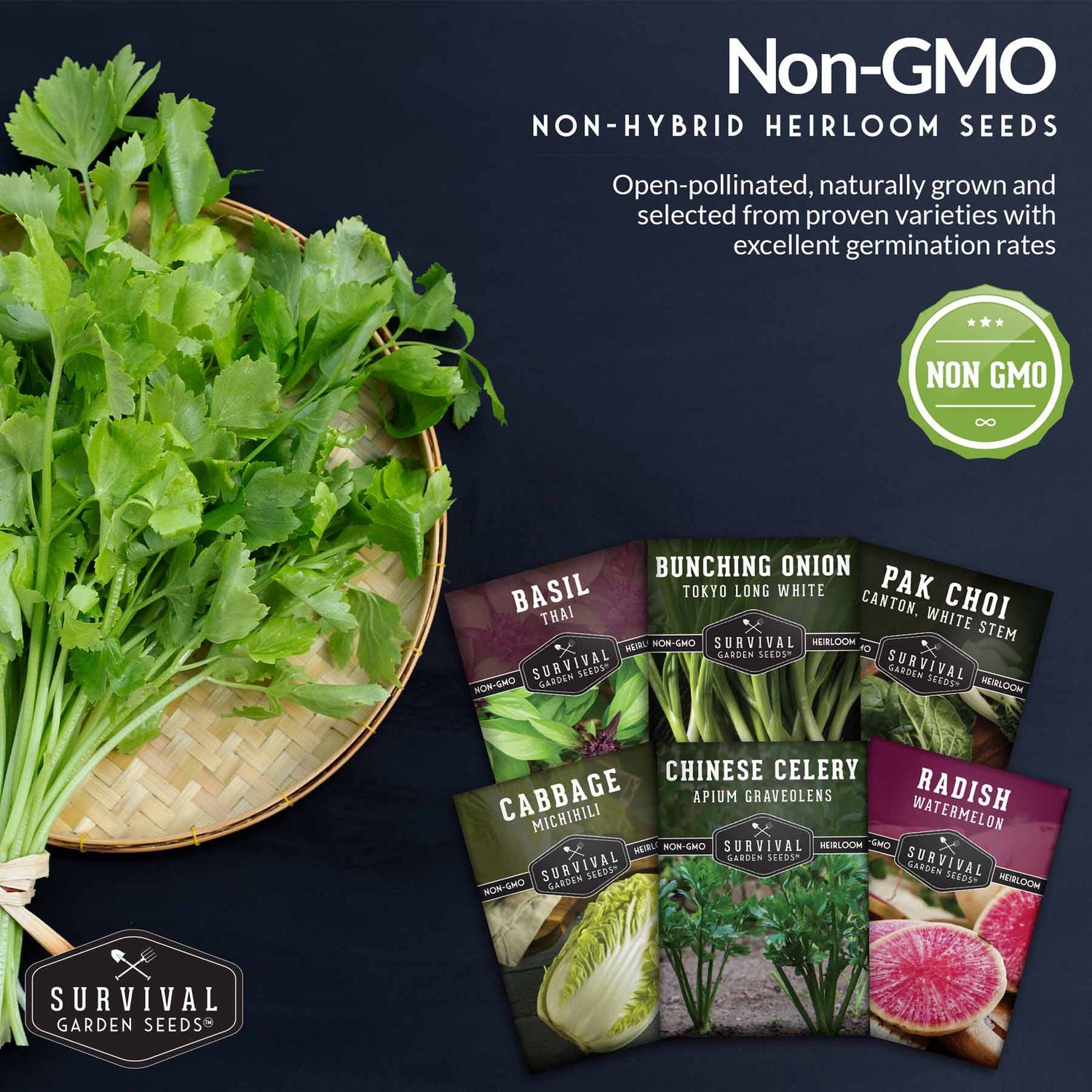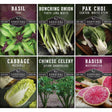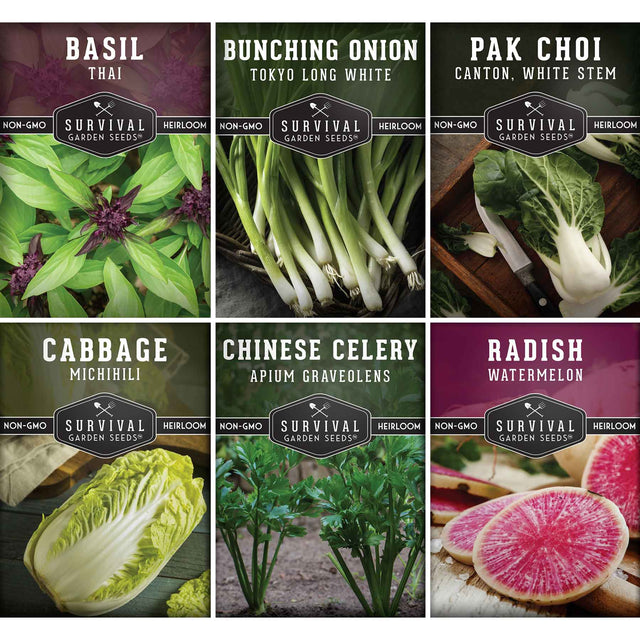Asian Vegetable Seed Collection – 6 Heirloom, Non-GMO Varieties for Stir-Fries, Soups & Authentic Home Cooking
Heirloom - Non-GMO - Reliable Germination
Asian Vegetable Seed Collection – 6 Heirloom, Non-GMO Varieties for Stir-Fries, Soups & Authentic Home Cooking is backordered and will ship as soon as it is back in stock.
Couldn't load pickup availability
Bring authentic Asian flavors into your home garden with the Asian Vegetable Seed Collection from Survival Garden Seeds. This curated set of six heirloom, non-GMO varieties offers a diverse mix of fresh greens, herbs, and roots used in stir-fries, soups, pickles, and everyday cooking. Each plant is selected for ease of growth, dependable performance, and rich culinary value—perfect for gardeners looking to expand their kitchen garden with new flavors.
Flavorful, Nutritious, and Versatile
These traditional Asian vegetables are packed with flavor, texture, and kitchen usefulness:
- Thai Basil produces aromatic green leaves with purple stems and a distinctive clove-like flavor, ideal for curries, noodle dishes, and stir-fries.
- Michihili (Napa) Cabbage forms upright, loose heads with crisp white stems and tender green leaves—excellent for fermenting, stir-frying, or adding to soups.
- Chinese Celery grows slender, hollow stems with an intense celery flavor and thrives in containers or garden beds. A great addition to broths, dumplings, and stir-fries.
- Tokyo Long White Bunching Onion offers tall, slender greens up to 16 inches. These mild, non-bulbing onions are easy to grow and perfect for topping soups, rice bowls, and sautéed dishes.
- Canton Pak Choi (Bok Choy) is a cool-season favorite with crisp white stems and mild leaves. Ideal for steaming, sautéing, or cooking in soups and noodle dishes.
- Watermelon Radish features a green-and-white exterior with a vivid pink center. Mild and crunchy, it works well in salads, pickles, and garnishes.
Why Gardeners Love the Asian Vegetable Seed Collection
- Expands your garden with unique, authentic Asian vegetables
- Excellent for stir-fries, soups, fermenting, and fresh eating
- Easy-to-grow mix suitable for containers, raised beds, or traditional gardens
- All seeds are non-GMO, open-pollinated, and heirloom quality
- Packets include growing tips and seed-saving instructions for long-term use
- Ideal for both beginners and experienced gardeners seeking variety
How to Grow
Plant seeds according to each variety’s recommended depth and spacing. Most crops prefer full sun and well-draining soil, though Chinese celery and bunching onions perform well in containers too. Keep soil consistently moist during germination. Cool-weather crops like pak choi and napa cabbage thrive in spring and fall, while basil and radishes grow well across most seasons. Follow individual packet instructions for best results.
Harvest & Use
Pick pak choi and napa cabbage when heads or bunches reach your preferred size. Harvest basil frequently to encourage new growth. Snip bunching onion tops as needed for cooking. Enjoy radishes raw, pickled, or sliced for color and crunch. Chinese celery can be cut as stems mature, adding robust flavor to soups and stir-fries.
Heirloom Garden Seeds
All of our seeds are open-pollinated, non-GMO, heirloom varieties with tested germination rates
Payment & Security
Payment methods
Your payment information is processed securely. We do not store credit card details nor have access to your credit card information.
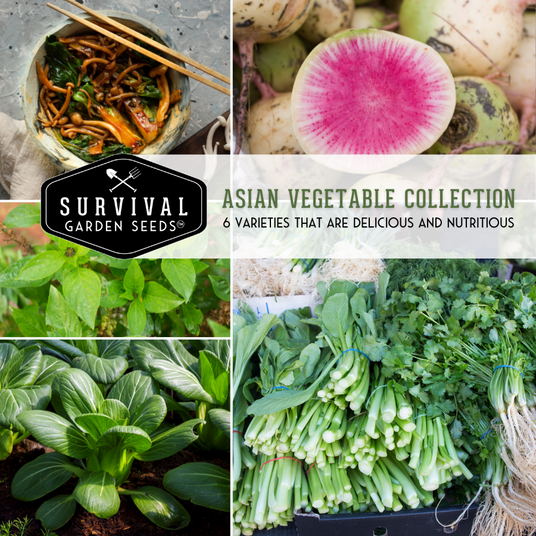
Exotic But Easy to Grow
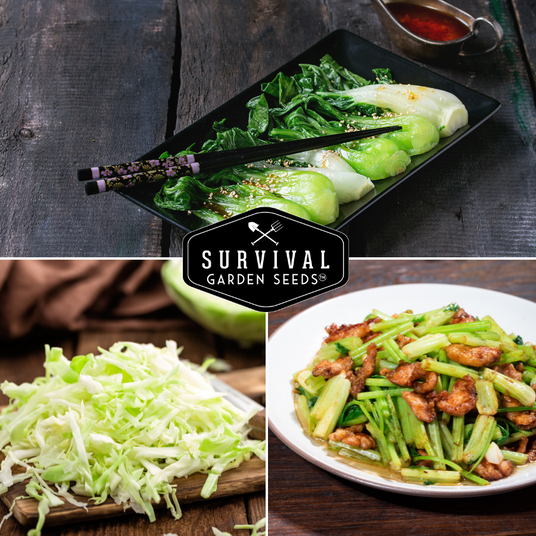
Delicious and Nutritious
Why Choose Survival Garden Seeds
At Survival Garden Seeds, we believe in preparing today for tomorrow’s peace of mind. That’s why we offer only heirloom, non-GMO, and untreated seeds you can trust to nourish your family and support a sustainable lifestyle. As a family-owned American company, we’re committed to providing seeds that grow strong and true—helping you cultivate health, resilience, and beauty in your garden.
Frequently Asked Questions
Are your seeds heirloom and open-pollinated?
Are your seeds heirloom and open-pollinated?
Yes. All of our seeds are heirloom, open-pollinated varieties, which means they can produce seeds that grow true to type and are suitable for seed saving.
You can learn more about open-pollinated, heirloom, and non-GMO seeds in our Survival Garden Training blog.
Are your seeds non-GMO?
Are your seeds non-GMO?
Yes. All Survival Garden Seeds are 100% non-GMO. Our seeds are open-pollinated heirloom varieties and are never genetically modified.
Are your seeds treated with chemicals?
Are your seeds treated with chemicals?
No. Our seeds are completely untreated and free from chemical coatings, fungicides, or synthetic treatments.
How do I know my seeds are fresh?
How do I know my seeds are fresh?
Every seed packet includes a packed-for date, and we germination-test each seed lot before packaging to ensure high viability.
What is the shelf life of your seeds?
What is the shelf life of your seeds?
Most seeds remain viable for 3 to 5 years or longer when stored properly in a cool, dry place away from light and moisture.
In what USDA hardiness zones can I grow your seeds?
In what USDA hardiness zones can I grow your seeds?
Our varieties are selected to grow successfully across USDA Hardiness Zones 3 through 10. Each packet includes variety-specific planting guidance and germination tips.

